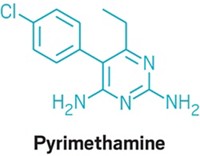Advertisement
Grab your lab coat. Let's get started
Welcome!
Welcome!
Create an account below to get 6 C&EN articles per month, receive newsletters and more - all free.
It seems this is your first time logging in online. Please enter the following information to continue.
As an ACS member you automatically get access to this site. All we need is few more details to create your reading experience.
Not you? Sign in with a different account.
Not you? Sign in with a different account.
ERROR 1
ERROR 1
ERROR 2
ERROR 2
ERROR 2
ERROR 2
ERROR 2
Password and Confirm password must match.
If you have an ACS member number, please enter it here so we can link this account to your membership. (optional)
ERROR 2
ACS values your privacy. By submitting your information, you are gaining access to C&EN and subscribing to our weekly newsletter. We use the information you provide to make your reading experience better, and we will never sell your data to third party members.
Pharmaceuticals
Senate Blocks Drug Import Bid
Safety concerns cited by health officials and drug industry thwart effort to allow imports of lower cost medicines
by Glenn Hess
May 10, 2007
A Senate vote on Monday effectively killed an effort to allow Americans to buy lower priced prescription drugs from abroad. This action clears the way for passage of legislation that will reauthorize FDA's ability to collect fees from the pharmaceutical industry to help defray the cost of reviewing New Drug Applications.
The Senate voted 49 to 40 to approve an amendment that would require the Health & Human Services Department to certify that prescription drugs imported from Canada and other countries would pose no safety risk to U.S. consumers. But HHS officials have repeatedly said they cannot make that guarantee.
The measure, sponsored by Sen. Thad Cochran (R-Miss.), undercut an amendment offered by Sen. Byron Dorgan (D-N.D.) that would have allowed drug imports from FDA-approved sources in Canada, Australia, Europe, Japan, and New Zealand without the certification requirement. Prescription drugs made in those countries can cost two-thirds less than they do in the U.S.
After the vote, Cochran said Dorgan's amendment "would have put in jeopardy the process we now have to ensure the safety of prescription medications and protect the health of the American people. I am pleased that safeguards have now been applied to the drug importation proposal."
But Dorgan said the fight for lower drug prices is not over. "Today's vote is a setback, to be sure, but it is not the end of our effort to make prescription drugs more affordable for the millions of Americans who need them to live healthy and independent lives," he remarked.
Pharmaceutical companies argue that importation could compromise drug safety by allowing counterfeit medicines to enter the market. They are also concerned that opening the U.S. to imported drugs could lead to government price controls, such as those in Canada and Europe.
The White House had threatened to veto the bill if it allowed unrestricted imports.
"The Administration believes that allowing importation of drugs outside the current safety system established by the FDA without addressing these serious safety concerns would threaten public health and result in unsafe, unapproved, and counterfeit drugs being imported into the United States," the White House said in a policy statement. The House is also considering drug import legislation.



Join the conversation
Contact the reporter
Submit a Letter to the Editor for publication
Engage with us on Twitter